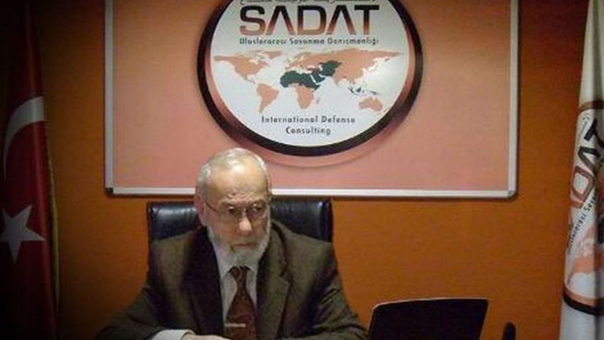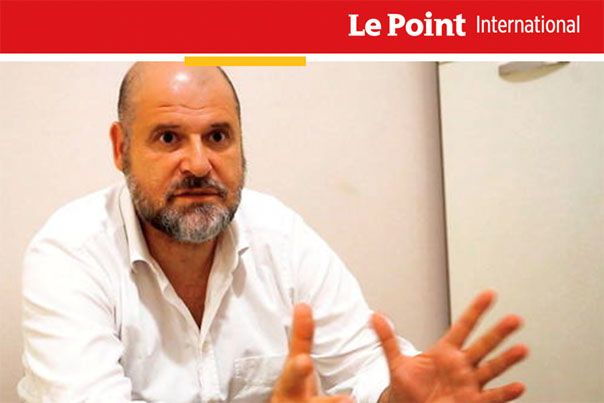Turkish assassination teams: The policy of criminalisation in Europe encouraged killings - PART 2
Assassinations and assassination plans targeting the Kurdish freedom movement were introduced as a new concept in the early 1980s.
Assassinations and assassination plans targeting the Kurdish freedom movement were introduced as a new concept in the early 1980s.

Assassinations and assassination plans targeting the Kurdish freedom movement were introduced as a new concept in the early 1980s. Encouraging these plans of the Turkish state was the decision of the European states to criminalise the Kurdistan Workers' Party (PKK) defining it a terrorist association.
In 1985, Germany became the first state to declare the PKK a "Terrorist Organisation". One year later, on February 28, 1986, then Swedish Prime Minister Olof Palme was murdered while returning from the cinema with his wife on foot.

Swedish Prime Minister Olof Palme
For this execution they deliberately lay the blame on the PKK. The just and legitimate struggle of the Kurdish people was criminalised all over the world, on the grounds of this murder. A witch hunt was launched against the Kurds. Yet it was clear that Palme was the victim of a deep conspiracy. The Kurdish movement held responsible the Gladio and many secret services from the very beginning. When the main suspect in this case died, 34 years later, the case was closed and it was admitted that
the PKK had nothing to do with Palme's murder. Kurds are still waiting for an apology from the Swedish government for this cruel and unjust accusation.
KURDISH CENTRAL FIGURES ASSASSINATED IN DENMARK
As a result of this process, assassination squads started to be sent to Europe again from the early 1990s. İmdat Yılmaz, who immigrated to Denmark in 1978 and became the President of the Federation of Kurdish Associations in 1992, two years later was subjected to an assassination organised by the MIT in 1994. Yılmaz was attacked while leaving his home on 7 February. The attacker had emptied all the bullets in his gun into Yılmaz's body. The Danish police, to misdirect, raided the Kurdish association and detained the Kurds. Police and Danish media claimed that there was an “internal conflict within the PKK”. Yılmaz, who survived with injuries, was also pressured by the police to say that the assassination was carried out by the PKK. Yılmaz made it clear that the assassination was the work of Turkish intelligence. The case was closed without a serious investigation. However, the Danish intelligence service PET knew the perpetrator of the attack. The attacker was Mr Sabah Ketene, who often visited the "Iraqi Turks’ Cultural Association" in Copenhagen and carried a Turkish diplomatic passport.
Nationalist Turkish journalist Emin Çölaşan states that he knew Ketene as "Hero" in his article published in Hürriyet newspaper dated 11 June 2006. While describing how his "hero" Sabah Ketene carried out the assassination in Denmark, Çölaşan drew attention to the fact that Ketene had carried out this attack as a state official. After many years, in Sözcü newspaper dated July 2, 2019, this time, under the title of "Turkmen Hero", he was praising MİT member Sabah Ketene. While writing that he met Ketene before he died, he continues: “He was a member of MIT and had done a lot of work, especially abroad. He was both an intelligence officer and the leader of one of the disguised hit teams.”
Cölaşan's source, Ketene, described the assassination in Denmark as follows: "When we are given a mission in one country, we go separately and unite there. We raided the apartment where an important PKK member lived in the capital city of a Western European country. We got him trapped in front of the elevator, and shot at least 10 bullets. We left thinking he was dead. But the man had seven lives. He stayed in the intensive care unit for six months and eventually recovered. We couldn't finish him, but he won’t be the same again."
MIT AGENT: WE EXPLOSED BOMBS IN ATHEN
From Çölaşan's article, it was understood that Sabah Ketene's crimes in Europe were much more. Ketene told Çölaşan: “We formed teams, organised and started burning their forests both on the Greek islands and on the mainland. Its beautiful forests were destroyed... Also, bombs were exploded in some touristic areas! We even detonated a few bombs in the Athens Piraeus metro...”
Ketene, who explained that he carried out a bomb attacks against the PKK in Hewlêr (Erbil), the capital of the Federal Kurdistan Region (Iraqi Kurdistan), was killed as a result of an armed action in the Federal Kurdistan Region in April 2006.
TURKISH STATE'S ASSASSINATION ACTIVITIES IN EUROPE UNDER ERDOĞAN
The power struggle and new partnerships during the transition from Kemalism to the era of Recep Tayyip Erdoğan have revealed new paramilitary structures. Especially abroad, intelligence, kidnapping and assassination activities were intensified. Now, all structures with a "Turkish" and "Muslim" character connected to the state began to work like intelligence agencies. Mosques, imams, disciples of sects, nationalists, associations, journalists, politicians, ambassadors and more became part of this intelligence network.
The first major attack by the Erdogan government abroad took place in Paris on January 9, 2013. One of the founders of the PKK, Sakine Cansız, KNK Paris Representative Fidan Doğan and Kurdish youth movement member Leyla Şaylemez were murdered in an attack organised by the MIT. All traces of the investigation showed that the order came from Ankara.
NEW PARAMILITARY CRIMINAL DEVICE: SADAT
In the following years, attacks against Kurds and all opposition voices escalated, both domestically and abroad. New paramilitary structures came into play. Now the judiciary, the police, the parliament, the media and the military came under the command of the government as a whole. The prominent new name was SADAT. SADAT, which acted as a paramilitary Organisation as an internal threat and pressure tool, was also assigned for operations abroad.
SADAT is mentioned in the assassination attempts against Kurdish prominent individuals in Belgium and politician Berivan Aslan in Austria. Adnan Tanriverdi, the head of SADAT, abbreviation for the International Defence Consulting Company, visited Paris with Erdogan in 2018, at the time of the preparation of the assassination attempt in Belgium. His name was not mentioned in the official delegation. It is not known what kind of meetings he held during this visit, what was discussed or whether any agreements were made.

The information revealed in the investigation carried out in Belgium also reveals the connections between the assassination team and SADAT. Photos of the assassination team members with Adnan Tanrıverdi are included in the file. The case in Brussels is considered extremely important for these dark structures to be deciphered and convicted before justice. These structures, which we describe as dark, also reveal the true character of the Turkish state since its establishment.
So who is this Tanriverdi and SADAT under his administration? Tanriverdi was Erdogan's personal advisor. He is a former soldier who has served as the Chief of the General Staff Special Warfare Department and the TRNC Civil Defence Organisation for 30 years. Tanriverdi is a lecturer at The Turkish Military Academy and the current Minister of National Defence, Hulusi Akar, who became the Chief of General Staff on July 15, is one of Tanriverdi’s student.
Their relationship with Erdogan dates back to at least 1994. The relationship between them intensified after the February 28 period, and gained a new dimension after the "coup attempt" on July 15, 2016. As a matter of fact, after this date, Tanrıverdi started to work as the Chief Advisor to the President on security issues at Erdoğan's request. He began attending security summits at the very top of the state.

As a result of reactions to his statement, "We need to prepare for the arrival of the Mahdi," at the 3rd International Islamic Union Congress held in Istanbul in December 2019, Tanrıverdi resigned from his duties both as the Chief Advisor and also as the Security and Foreign Policy Committee Member on January 8, 2020.
SADAT, which he founded, officially was registered on February 28, 2012. At that time, there were 23 retired officers and non-commissioned officers. Today, it is stated that it has 64 advisers in 22 Muslim countries, especially in the Tripoli government. SADAT, which directly participates in the training of armed groups in Syria, can easily enter Turkish military camps. In 2016-2017 and 2018, it advised armed gang groups in the invasion operations called Euphrates Shield and Olive Branch. This force, which is used in foreign operations, is also used as an armed political militia within the country. It is claimed they have camps especially in Tokat and Konya provinces. SADAT's real activities are kept confidential, except for some emerging information.
It is alleged that SADAT is working especially for the security of the governments of Muslim countries. SADAT, which also acts as a mediator between the governments in question and the Turkish defence industry, also provides training for the Infantry, Special Forces, Navy and Air Forces. SADAT, which is also considered as a new Turkish Gladio, manages operations inside and outside the country. In other words, it acts like a parallel structure of MIT inside the country and abroad.
As a matter of fact, the Erdogan regime has increased its threats against the dissidents in Europe with its paramilitary structures. Now, not only the Kurds, but all the active opposition voices are being targeted.
SADAT also appears in an article published in the French Le Point magazine in September 2021. The subject of the news is the assassination attempt on Berivan Aslan. The person whose opinions were sought is Feyyaz Öztürk, who was assigned for the assassination.
Although Feyyaz Öztürk, who turned out to be an MIT agent, confessed to the assassination attempt. Instead of being arrested by Austria, he was deported to Italy, where he was a citizen. He lives on the island of Sicily. Speaking to journalist Guillaume Perrier from Le Point magazine, Öztürk said that a secret cell acting on behalf of the MIT contacted him in 2018, that they had a meeting in an association in Belgrade in August 2020, and that someone named "Uğur" talked to him and gave him the task of "chaos killing of the Vienna politician Berivan Aslan”. Öztürk also went to the Austrian intelligence service BTV in September 2020 and confessed, in detail, the task given to him by the secret Turkish cell. An investigation was launched against him for crimes such as participating in the assassination attempt and having relations with criminal organisations, and he was suddenly released three months later.

Feyyaz Öztürk took part in the plot to assassinate Austrian Kurdish politician Berivan Aslan
Feyyaz Öztürk who took part in the assassination plan against the Austrian Kurdish politician Berivan Aslan.
Öztürk especially drew attention to the role of SADAT in his confessions to Le Point magazine: “After the failed coup attempt on 15 July 2016, thousands of intelligence agents accused of treason were purged. To fill the void, the state relied on nationalist cells or paramilitary groups. SADAT, the private security company founded by an Islamist general, has thus become one of the main contractors in MIT's operations abroad.”
France stands out again in Öztürk's confessions. In the last decades, especially by the Turkish intelligence agency France has been used as an operation area. Öztürk continues “I lived in the MIT sanctuary in an apartment in Choisy, in the middle of Chinatown in France”.
PART ONE can be read here